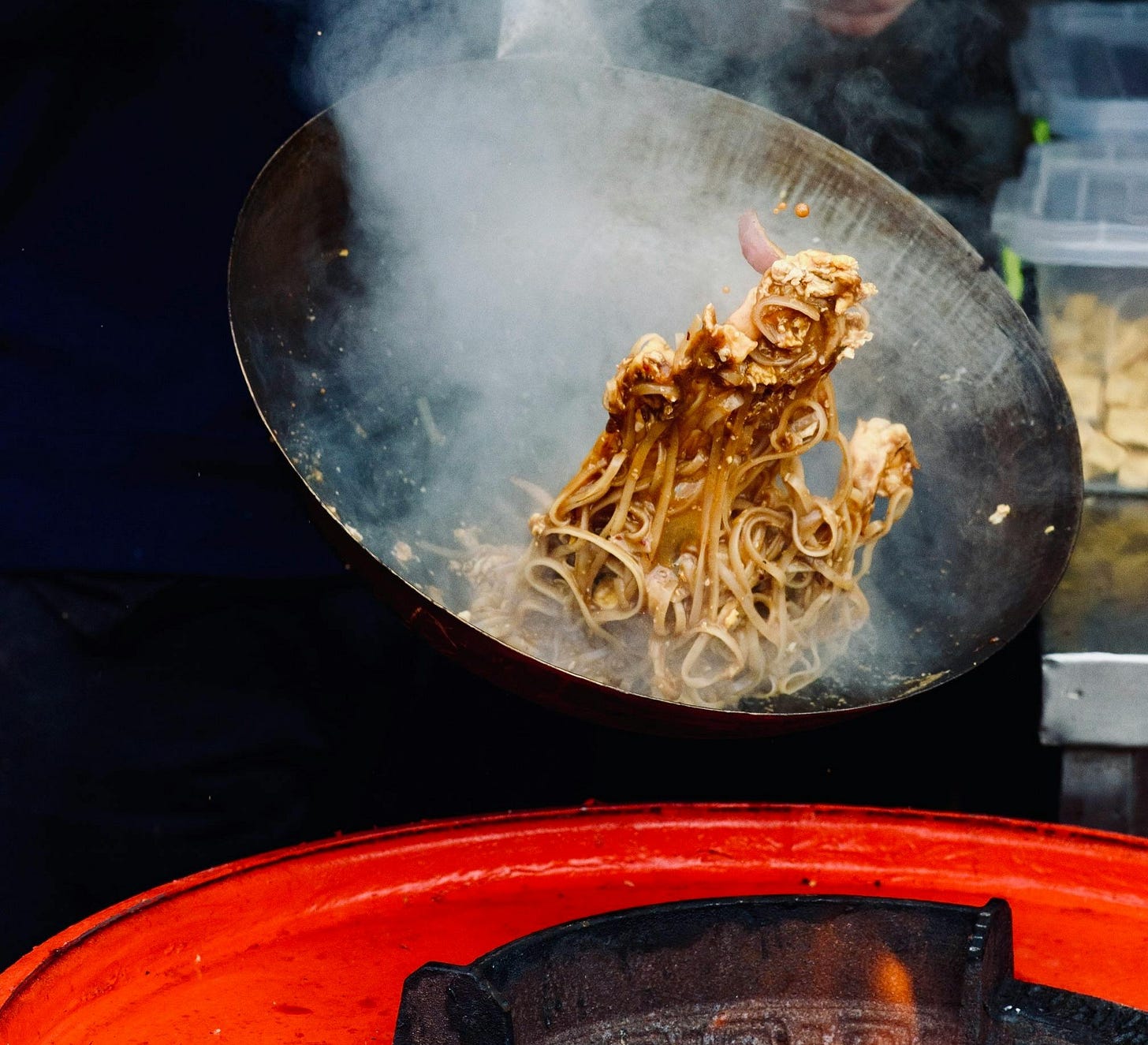your olive oil is fine
smoke point is just what your food influencer wants you to care about
Over the past five years, I’ve noticed a lot of chatter in home kitchens about oils. Sure, there’s the whole seed oil thing, but why does everyone suddenly want to have high smoke point oils?
We’ve all been cooking and see that ripple of oils turn into wisps of smoke coming off the edge of your pan. A fan is turned on, the oil is dumped and you curse yourself for using olive oil once again! You go to the store for avocado oil because of course, it’s a high smoke point oil, but who is espousing the virtues of high smoke point anyway?
oooh, that smell
…can you smell that smell?
Oil smoke is pungent - hell - even hot oil is a pretty pungent smell. An oil’s smoke point is a pretty one to define as…the point at which the oil starts to smoke. What a great technical we food scientists put together there.
What happens when an oil starts to smoke? The fatty acids that make up the oil begin to break down from the heat to produce acrolein. It’s the iconic smell of fried food and you’ll also notice it in coffee from the burning of its oils during roasting. It is pungent and makes the air and your food taste burnt and bitter.
This isn’t what we’re going for when we fry up eggs in the morning. Oils’ smoke point has more to do with their refinement than the actual source of the oil itself. Remember when we talked about refinement? It essentially strips solids like seed, skin and pulp, decreases any free fatty acids in the oil and neutralizes any flavor of the olive or avocado from whence it came.
To put this into context: unrefined avocado oil starts to smoke at 375F, pretty similar to olive oil. Yet refined avocado oil doesn’t start smoking until about 510F, which makes it ideal to cook with at high heat. So it matters more how much that oil is stripped down to a pure oil, rather than where the oil comes from.
smoke point is overhyped
Getting annoyed at the smell of smoke, the bitter flavor and the creation of toxic compounds in your food is valid. Acrolein, free radicals and aldehyde compounds aren’t great for you and opening your windows and running an air purifier are a pain.
But my question is: how often are you deep-frying or using a high-heat wok at home? If you’re running a restaurant or can’t make your french fries any other way, fine, you have won this battle. Just make sure you strain your oil between uses and if you will definitely want a higher smoke point.
The reality is you’re probably cooking your food at too high of a temperature. Confiting products is done low and slow at 250F and typically sautéing is around 350F, so if you’re afraid of hitting your smoke point, consider how you're preparing your sautéed veggies.
so what oil should you use?
Let’s keep it simple. If you’re doing something hot and fast, smash burgers, steak, wok cooking, or deep frying, go ahead and use a refined oil with a high smoke point. Refined avocado oil, peanut oil, or even canola (oops, I recommended a seed oil…) will all hold up under heat without smoking out your kitchen or breaking down into bitter sludge.
But if you’re sautéing onions, finishing a soup, or drizzling something on your sourdough, please use the good stuff. Extra virgin olive oil? Beautiful. Toasted sesame oil? Amazing. Butter? Always. These oils carry flavor and character. They might not take kindly to searing-hot cast iron, but they’ll make your food taste like something.
The best way to avoid hitting the smoke point isn’t swapping oils, it’s lowering your heat. Most people are cooking way too hot, way too often. You don’t need your burner cranked to max to sauté vegetables. In fact, if you’re burning your garlic, it’s not the oil’s fault.
stop cooking scared
The smoke point of oils is good to know, but it’s not the gospel. Think of it like a speed limit sign, not a moral compass. Most home cooking doesn’t even push oils to their smoke point unless you’re rushing, distracted, or trying to be a line cook in your one-bedroom apartment.
So don’t throw away your olive oil. Don’t buy avocado oil just because the internet told you to. Instead, pay attention. Cook with intention, it is a virtue after all. If it smells off, toss it. If it’s smoking, back off the heat. If it tastes great, you’re doing just fine.
Trust your senses. You’re the one eating it, after all.


